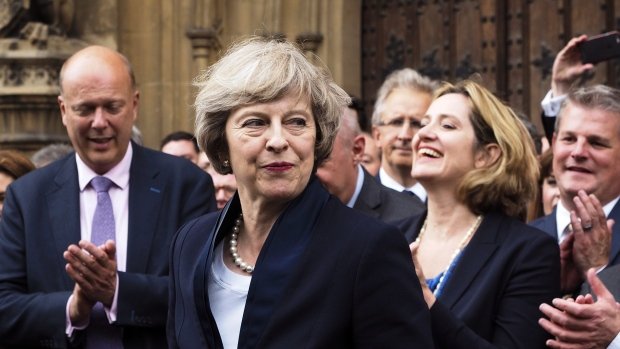British Prime Minister May wants to Hurry the Brexit deal with Opposition Labour. British Prime Minister Theresa May said on Saturday that the longer it takes to reach an agreement with Labour on the Brexit, the less likely it is that Britain will leave the European Union.
She also defended her decision to turn to the Labour opposition party in the hope of reaching another Brexit deal. “A new approach was needed,” said the Prime Minister, after the British Parliament had voted out three times its agreement on leaving the European Union.
In a statement, May said she had done “everything possible” to convince her conservative party and the DUP Northern Irish union (who provide her tolerance in parliament) to approve the agreement she concluded last year with the European Union.
“But that deal was rejected three times by parliament, and there is no sign that it would be accepted soon,” said May. “So a new approach was needed. We had no choice but to reach out to the other side of the lower house. “
Some criticise may in her party for her decision to consult with Labour opposition leader Jeremy Corbyn. Friday, there was no breakthrough in those talks, and Corbyn had already announced “less change than expected” in the government’s position.
Labour argues in favour of a customs union with the EU and access to the single market.
According to May, it is necessary to find a compromise that a parliamentary majority can get quickly. “Otherwise, the Brexit that the British voted for threatens to slip through our fingers.”
“The fact is that the two main parties agree on two things: we both want to end free movement, we both want to leave with a good deal, and we both want to protect jobs,” said May.
“That is the basis for a compromise that a majority in parliament can get and win that majority is the only way to deliver Brexit,” said May.
According to The Sunday Times, May would like to conclude a customs arrangement with the EU to get Labour on board.
The British departure from the EU is currently planned for 12 April. May again asked European President Donald Tusk this week to postpone the Brexit until 30 June. Tusk, on the other hand, would argue in favour of an extension to twelve months, a so-called “flex tension”.

